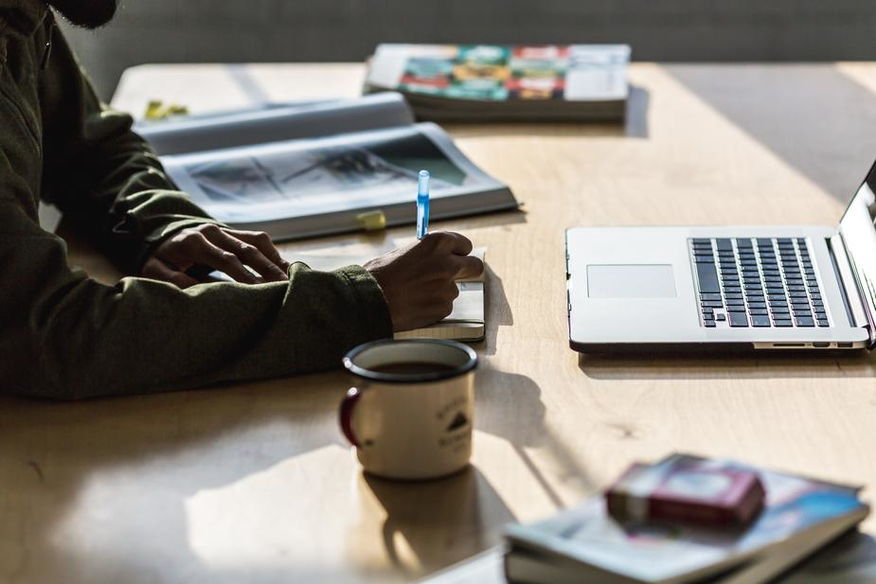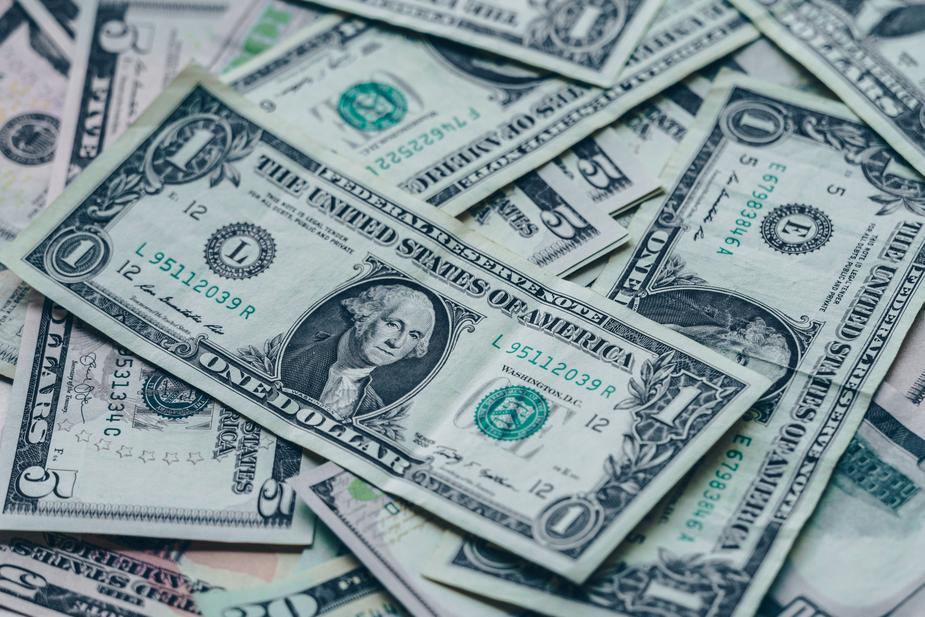How to trade Forex

- Learn how the Forex market works
- Steps to trading Forex
- Opening a trading account
- Fund your account
- Build a trading plan
- Download a Forex trading platform
- Decide on the Forex trading types.
- Select a currency pair
- Analyze the market
- Learn how to read the charts
- Forex Chart Types
- Price and quote
- Pick your position/buy and sell positions for currency.
- Long and Short Positions
- Entering a Long Position
- Entering a Short Position
- Adding orders
- A stop-loss order
- Standard stop-loss order
- A Limit Order
- Monitor and close your trade
- Closing Your Trade
- Forex Trading Tutorial
- Conclusion
Are you new to Forex and want to learn how to trade in the Forex market? One of the primary reasons many beginners fail to fulfill their dreams in the Forex market is failing to learn its intricacies. When you lack the required skills and techniques for making a profit, you’ll always be on the losing end. Forex trading comes with great opportunities and huge rewards. But traders should understand they can lose a large amount of money while trading Forex. In this article, you will learn how to trade Forex the right way, just like a pro.
Learn how the Forex market works
Many individuals love the idea of trading Forex, making money, and enjoying a financially independent lifestyle. This concept has been boosted by the significant rise of retail Forex trading through online brokers over the past decade. And the Forex market is now accessible to anyone with a small deposit to utilize as margin and a mobile internet-enabled device or a laptop computer/PC.
The fundamental mechanics of how to trade Forex are straightforward and easy to learn. They are vital if your goal is to run a long-term Forex trading business and enjoy consistent profitability. It is all about investing valuable time in learning how the foreign exchange market works while making some money on the go.
The Forex market is where currencies from various countries are traded. Most people don't know how vital currencies are until they need one to conduct foreign trade and business. What makes this international market unique is that there is no central marketplace for Forex. In this case, currency trading is carried out electronically over the counter (OTC); this implies that every transaction occurs through computer networks between numerous traders from every part of the world instead of one centralized exchange.
The Forex market is open 24-7 for five days a week. Currencies are traded globally in major financial centers of New York, London, Zurich, Tokyo, Singapore, Hong Kong, Paris, and Sydney. The activities take place across almost each time zone and in a way that doesn't affect the other. For instance, when the trading day in the United States ends, the Forex market starts anew in Hong Kong and Tokyo. This market system implies that the foreign exchange market can be very active at any time of the day, even as price quotes continuously change.
Steps to trading Forex
A quick rundown on the steps to follow when it comes to trading Forex:
- Open trading account
- Fund your account
- Build a trading plan
- Download a Forex trading platform
- Decide on the Forex trading types
- Select a currency pair
- Analyze the market
- Learn how to read the charts
- Price and quote
- Bid price
- Ask price
- Pick your position/buy and sell positions for currency
First of all, you'd want to get hold of an internet-enabled device. It could be a smartphone, a tablet, a modern desktop, or a laptop computer—the best operating systems to use when trading Forex is Android and Windows. However, several trading platforms that run on iOS and Mac devices are also available.
Opening a trading account
To open a trading account, you need to pick a highly reputable online Forex broker. There are many brokers on the market— legit and illegitimate, and you want to be careful while making your choice. There are several things to look out for when searching for a reputable online Forex broker.
The broker ought to have been in business for a commendable number of years with a good customer base. You can never go wrong with reviews as existing users let you in on the broker's pros and cons.
So, when you find a trusted online broker, you can open a trading account. Reliable online Forex brokers make it easy for people to open trading accounts. Visit their official website, confirm you are not a robot, and accept binding terms and conditions.
Fund your account
Now that you are ready to trade Forex with real money, you must deposit funds into an account with that Forex broker as margin. The amount of money you deposit is leveraged by a particular ratio that depends considerably on you and your broker's location. This requirement is a result of regional regulations.
Brokers generally offer numerous account funding methods, so go for the one you find convenient. You will need to utilize the same method when it comes to withdrawing your funds from your trading margin account.
Build a trading plan
A trading plan is an organized method of executing a trade. It is essential to have a solid trading plan or system that is defined by technical aspects as well as the business behind trading itself. Trading success is a product discipline and proven-to-work strategy. Yet, many traders fail to recognize that Forex trading is not only about strategies. Several other factors contribute to you becoming a great and successful trader. These include market analysis, proper risk management, and concrete decision making under pressure.
Download a Forex trading platform
You may come across any of the numerous Forex trading platforms out there which facilitate online trading. However, reputable online Forex brokers support and use the popular MetaTrader 4 or MetaTrader 5 platforms run by MetaQuotes. You can download a Forex trading platform for free from the respective app stores and install it on your mobile device or computer. But some brokers have patented trading platforms that you can use online or download from their websites.
Installation and making use of the trading platform is usually straightforward as long as you follow instructions.

Decide on the Forex trading types.
There are three distinct ways to trade Forex with CFD, City Index Spread Betting, or Forex Trading. Each of these methods has its specific stake size outlined as follows:
- In Forex trading, what you buy is called 'lots,' It will be in the unit of the base currency.
- In spread betting, you do trade pounds per point movement.
- In CFD trading, you trade a specific quantity of CFDs in the unit of the base currency. For instance, if you trade USD/JPY, your stake will be in US Dollars while in GBP/USD, your stake will be in Pounds (the minimum stake size is 1000)
Select a currency pair
This step is where you make up your mind on the currency pair you want to trade. You can choose any of more than 65 currency pairs. It is crucial to pick the right trading opportunity. You can take advantage of any of the numerous fundamental and technical research tools available online to help you spot lucrative currency trading opportunities suitable for your trading style.
Experts recommend that you spend as much time as you can to fully understand the amount of price volatility linked with the currency pair, as this will help you manage your risk efficiently.
Analyze the market
There are two practical methods of analyzing the Forex market, and these include fundamental analysis and technical analysis:
- Fundamental Analysis
With detailed fundamental analysis, you can examine the market by tracking figures such as unemployment rates, interest rates, GDP (gross domestic product), etc. You need to be on top of any significant news releases from the country or zone you trade with concerning the overall health of their economies.
- Technical Analysis
These are available as automated and manual systems. The latter involves the analysis of technical indicators and accurate interpretation of that data into a sell or buy decision. In contrast, automated trading analysis involves teaching a proprietary software to look for specific signals and accurately interpret them into executing sell or buy decisions.
Learn how to read the charts
In Forex trading, it is crucial to learn and understand how to read charts—a lot depends on it. Many Forex experts consider price action as one of the best and most efficient ways to read the charts. It is the technique that most professional traders utilize all the time, which has accounted for their successes in the Forex trading market. When you have successfully learned how to read the charts, you will fully understand why the foreign exchange market is going down, up, or sideways. You will be able to spot opportunities and pick out the perfect strategy for your trading style.
Forex Chart Types
Before computers and mobile devices revolutionized technical analysis, traders used papers to illustrate Forex charts. A profitable Forex trading requires the historical and current price behavior of your chosen currency pair. Hence, charts are one of the first things to get acquainted with before you trade. While there are many charts out there, here are the three most popular charts out there on the market.
- Line Chart
- Bar Chart
- Candlestick Chart
The line chart is the simplest chart of the noticed three, but comes with fewer details than others. This chart comes with a line formed from one closing price to the next closing price. In essence, the line chart shows only a series of closing prices.
The forex bar chart displays the opening and closing currency prices alongside the highs and lows. The bar chart is a little challenging to read but comes with more information than the line chart.
The candlestick chart pattern is a type of bar chart. It is the most popular and widely used chart in Forex. The reasons for this include that it is easy to read and its catchy illustration of information, which include open, close, high, and low prices for a certain period of a specific currency pair.

Price and quote
Whenever you trade Forex, you will see 'Ask' and 'Bid' prices. While you sell at the "bid" price of your chosen currency, you buy the currency at the "ask" price. Another vital thought to bear in mind when learning how to trade Forex from scratch is that it is possible to trade long and short. However, you need to be very aware of the risks involved in dealing with complex products.
Long trade:You perform a long trade (go long) by buying to sell at a higher price in later times and earn a profit.
Short trade: You do this (go short) by selling before buying to repurchase the currency at a lesser price and earn a profit.
The price at which a particular pair of currencies trades depends on the current exchange rates of the currencies in the pair. It is also based on the amount of the second currency that you will get in exchange for 1 unit of the first currency.
Pick your position/buy and sell positions for currency.
Now that you have picked a market, the next step is to determine the market trades' current price. You can do this when you bring up a trade ticket on the platform. All foreign exchange is quoted to one currency against another. Each currency pair has a 'quote' currency and a 'base' currency. The latter is the currency on the left-hand side of the currency pair, while the 'quote' currency is on the right. When trading foreign currencies, you will do any of the following:
Sell
If you believe that the base currency will become weak in value against the quote currency or the quote currency will strengthen against the base currency, sell a currency pair. Your profit rises in line with every point the exchange price falls.
Buy
Buy a currency pair if you believe that the currency on the left side will strengthen against the currency on the right, or the quote currency will become weak against the base currency. Your profits will rise in line with each increase in the exchange price.
Spread
Forex pairs have two specific prices; the first is the 'bid' or sell and the 'offer' or buy price. The difference between those two is known as the 'spread,' i.e., the cost of the trade.
Long and Short Positions
When you take the first trade in the foreign exchange market, you automatically enter a position. You have taken a preconceived position on the future direction of your desired currency pair's exchange rate. You can also add to that particular position via additional transactions in that particular direction or minimize that position by closing existing trades.
Moreover, every currency pair has one base currency and a counter currency, which is conventionally notated via their 3-letter ISO 4217 codes with a forward 'slash' between them. For instance, the British pound sterling (GBP) quoted as a base currency against the Japanese yen (JPY) as the counter currency is written as GBP/JPY.
Entering a Long Position
Entering a long position in a currency pair will require you to buy the base currency and sell the counter currency. When you buy the Pound and sell the Dollar, you have bought GBP/USD, thereby taking a long pound position in that specific currency pair.
Entering a Short Position
Entering a short position is easy to perform; all you need to do is to sell off the base currency and automatically buy the counter currency. When you sell the Pound and buy the Dollar, you have sold GBP/USD, which implies that you have taken a short pound position in that particular currency pair.
Adding orders
An order is an offer conveyed through a broker's trading platform with the intent to open or close a trade if the instructions listed by the trader are satisfied. You can use limit and stop orders to lock in any profits while minimizing your risks when you reach your respective loss or profit-risk targets. You need to understand and use risk management tools such as stop-loss orders, etc. given the Forex market volatility, though this is not compulsory.

A stop-loss order
One crucial element of a trading strategy is a stop-loss order. It refers to an instruction for you to close a trade at a specified price considered worse than the current market level to minimize losses. A stop-loss order can be any of the following.
Standard stop-loss order
This is an order or instruction that, when triggered, efficiently closes out the trade at the best price available. There is a risk that the closing price may be different from the order level if market prices eventually gap. Guaranteed stop loss: When this is triggered, it guarantees to close your trade at the predetermined stop loss level, irrespective of any market gapping. A small premium may be charged, however, upon triggering this stop loss.
A Limit Order
A limit order is a specific instruction to close a trade at a price considered better than the current market level. It is generally used to lock in price targets.
Both limit orders, as well as standard stop losses, are free to place. You can implement them in the dealing ticket the first time you place a trade. And it is also possible to attach orders to existing open positions.
Monitor and close your trade
When your trade is open, your trade's loss and profit begin to fluctuate with every move in the foreign exchange market price. You will be able to monitor market prices, see your unrealized loss/profit update in real-time, and be able to attach the order to open positions. You will also be able to add new trades or close existing trades that you are favorable or unfavorable to you via the app on your smartphone, tablet, or computer.
Closing Your Trade
When you are ready to close your open trades – at a profit or loss – simply take action opposite the opening trade. Let's say you bought 5 CFDs to open; you would sell 5 CFDs to close. When you close the trade, your net open profit and loss will instantly be realized and reflect immediately in your account cash balance.
Forex Trading Tutorial
You may need to go for a Forex trading tutorial if you must succeed. Therefore, it is recommended that you learn from the best Forex traders with a profitable trading history.
An excellent Forex trading tutorial should teach you the basics of Forex trading, how to read the charts, how to trade with a systemized and proven Forex trading strategy, etc. Do your due diligence online, read various reviews, and go for the best mentors you can find.
Conclusion
Now that you have discovered how to trade Forex, you can start your journey by utilizing a demo account via the trading platform of your choice. This is possible after you have successfully created a trading account via your preferred online broker, downloaded and installed the trading platform software approved by your broker, and start trading.
But if you are fully confident of your trading strategy, you can head over to your live account, upload your funds and start trading the markets in real-time.
As a Forex trader, you can work from virtually anywhere as long as you have access to the internet. Many Forex traders worldwide possess strong growth potential with their various lifestyles, offering much enjoyment.
However, this is not a gift that comes easily to those who dilly-dally all the time. The sooner you start your Forex trade journey, the faster you will live your dreams.









